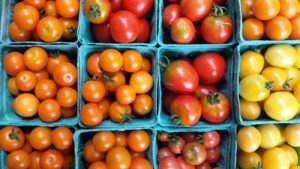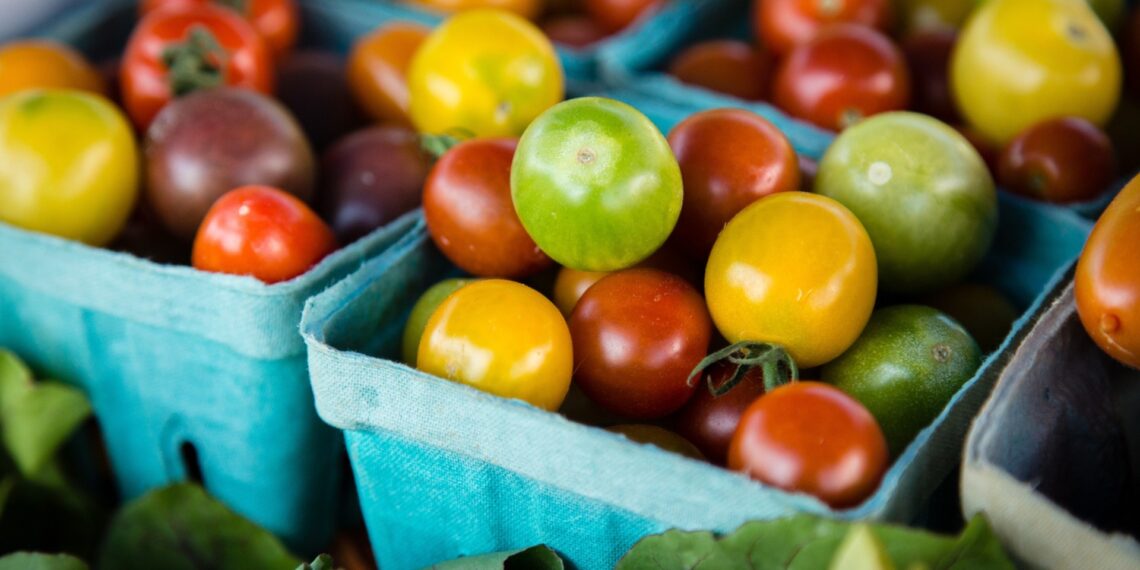Food is an essential commodity for human beings, and the availability and accessibility of nutritious food are critical to human health and wellbeing. The food system is the process by which food is produced, processed, distributed, and consumed. Over the years, the global food system has become more complex and industrialized, with food being transported across the world to meet demand. However, in recent times, local and regional food systems have gained popularity due to the numerous benefits they offer. In this article, we will explore the benefits of local and regional food systems.
Benefits of local and regional food systems
Fresher and more nutritious food
One of the most significant benefits of local and regional food systems is that the food is fresher and more nutritious. Local and regional food systems typically involve small-scale farms and food producers who grow and raise food in a sustainable manner. The food is then sold locally or regionally, often at farmers’ markets or through Community Supported Agriculture (CSA) programs. The food is generally harvested when ripe, and it does not need to travel long distances to reach consumers. This means that the food is fresher and has more nutrients, as it has not been sitting in storage or transported for long periods.

Support for local economies
Local and regional food systems provide significant support for local economies. The money spent on locally produced food stays in the community, supporting local farmers and food producers. This can help to create jobs and stimulate economic growth in rural areas, which often struggle with high levels of unemployment and poverty. Additionally, when consumers buy food locally, they are supporting small-scale farmers who may not have access to large markets and distribution networks. This, in turn, can help to preserve farmland and support the growth of local food systems.
Environmental sustainability
Local and regional food systems are more environmentally sustainable than global food systems. The production, transportation, and distribution of food are responsible for a significant portion of greenhouse gas emissions. When food is produced locally and regionally, it reduces the need for long-distance transportation, which can have a significant impact on reducing carbon emissions. Additionally, small-scale farmers and food producers often use sustainable agricultural practices that are better for the environment, such as crop rotation, natural pest control, and conservation of water and soil.
Improved food security
Local and regional food systems can help to improve food security, particularly in rural areas. When food is produced locally, it is less vulnerable to disruptions in the global food supply chain, such as natural disasters or political instability. Additionally, small-scale farmers and food producers can often respond more quickly to changes in demand or supply, which can help to ensure that food is available and affordable for local communities. This is particularly important in regions that are food insecure or have limited access to nutritious food.
Greater variety and taste
Local and regional food systems often offer a greater variety of food options and a better taste. Small-scale farmers and food producers often grow and raise a wider range of crops and animals, including heirloom varieties that may not be available in large-scale industrial farming. Additionally, the food is often harvested at the peak of ripeness, which means it has a better flavour and texture than food that is harvested early to withstand long-distance transportation.
Community building
Local and regional food systems can help to build stronger communities. Farmers’ markets and CSA programs provide opportunities for consumers to meet and interact with the people who grow their food. This can help to create a sense of community and promote social interaction. Additionally, local food systems can help to promote local culture and traditions, as many small-scale farmers and food producers use traditional methods and recipes that have been passed down through generations.

However, it is worth noting that local and regional food systems also face some challenges. For example, small-scale farmers and food producers may struggle to compete with larger industrial farms, which can produce food more efficiently and at a lower cost. Additionally, local and regional food systems may not be able to meet the demand for food in urban areas, which can limit their reach.
Despite these challenges, there are many ways to support local and regional food systems. One way is to buy food from local farmers’ markets or CSA programs. Another way is to support policies that promote sustainable agriculture and local food systems, such as zoning laws that allow for small-scale farming or subsidies for local food production. By supporting local and regional food systems, we can create a more sustainable and equitable food system for all.
Moreover, it is important to educate consumers about the benefits of local and regional food systems. Many consumers are not aware of the impact of their food choices on the environment, local economies, and their own health. By educating consumers about the benefits of local and regional food systems, we can encourage them to make more informed food choices and support local farmers and food producers.
Another way to support local and regional food systems is by building community gardens or participating in urban farming initiatives. These initiatives can help to promote local food production and provide access to fresh, nutritious food in urban areas. Additionally, they can help to build stronger communities and promote social interaction.
Finally, policymakers can play an important role in supporting local and regional food systems. They can create policies that promote sustainable agriculture practices, support small-scale farmers and food producers, and encourage the development of local food systems. For example, policymakers can provide grants or low-interest loans to small-scale farmers, create tax incentives for local food production, or invest in infrastructure to support local food systems.
In conclusion, local and regional food systems offer numerous benefits, including fresher and more nutritious food, support for local economies, environmental sustainability, improved food security, greater variety and taste, and community building. By supporting local and regional food systems, we can create a more sustainable and equitable food system for all. It is important for consumers, policymakers, and communities to work together to build and support local food systems and promote sustainable agriculture practices.



